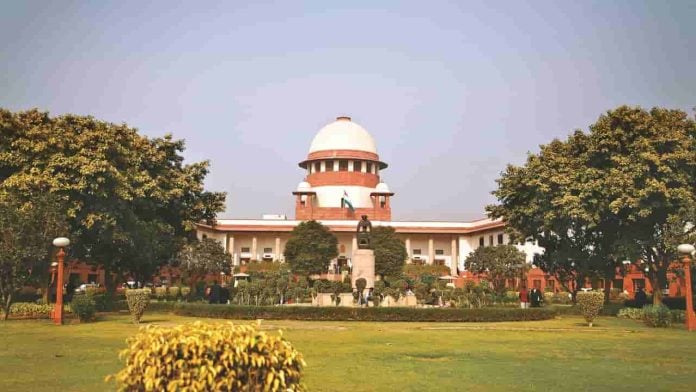Chief Justice of India Justice D.Y. Chandrachud will officially launch the electronic Supreme Court Reports (e-SCR) project tomorrow, as a tribute to the nation for 2023.
As per an Apex Court release issued on Sunday, the project endeavoured to take one step forward towards fulfilling the objective of digitisation of Indian Judiciary.
The statement said the initiative will provide digital version of the Apex Court verdicts in the manner as they are reported in the official law report – ‘Supreme Court Reports’.
It will also underline the vision to bring in a positive change for the benefit of all stakeholders of justice, primarily litigants and members of the Bar as also the High Courts, the National Law University and Judicial Academies.
As per the release, the e-SCR project was an important stepping stone for the future of modern Indian Judiciary, which entailed manifold benefits, including those of reduction in burden of travelling and browsing through huge volumes of journals in libraries, as also for enhancing its accessibility to those with visual disabilities, as they may now be able to access them through their screen reading software.
The project aspired to provide free access to official law reports of the Supreme Court’s reported Judgments to law students, lawyers and other legal professionals, besides the public at large.
The e-SCR project aimed at showcasing replica soft copies of SCRs by utilising verifiable authentic soft copies as available in the PDF
format.
According to the release, the project would create an invaluable resource as the entire
gamut of judgments from the inception of the Supreme Court in 1950 till date would be available on e-SCR and digital repository.
The Digitisation and scanning of Supreme Court Reports (SCR) from 1950 to 2017 and preserving the same in digitised soft copy in the
format of PDF (Portable Document Format), would go a long way in assisting the Registry in creating a digital repository in the Supreme Court’s reported judgments in soft form.
However, the challenges before the registry included segregation/splitting of reported judgments where the reported judgments, compiled in the form of Supreme Court Reports (SCR), pertaining to the years 1950
to 2017, were compiled in the form of a book wherein the judgments were
not segregated to form an individual judgment. A team comprising officials of Judges’ Library and Editorial Section worked tirelessly and
within a short span of 15 days, almost 34,013 judgments were split to create a database suitable for meeting the requirements of the proposed search engine with the facility of elastic search.
This was followed by extraction and verification of Meta Data so that various kinds of search
techniques may be deployed through the search engine. The meta data extracted by the Machine Learning Tool, developed by National
Informatics Centre (NIC) Pune, in respect of all the 34,013 reported verdicts has been duly verified within a short span of 15 days.
The SCI has developed a search engine with the help of NIC, Pune comprising elastic search technique in the database of e-SCR.
The search facility in e-SCR provided for free text search, search within search, case type and case year search, Judge search, year and volume search, bench strength search options.
The inbuilt elastic search facilitates quick and use-friendly search results. The e-SCR project will be rolled out on the Supreme Court’s website and would also be made available on the mobile application of the Supreme Court of India as also on the Judgment portal of the National Judicial Data Grid (NJDG).


